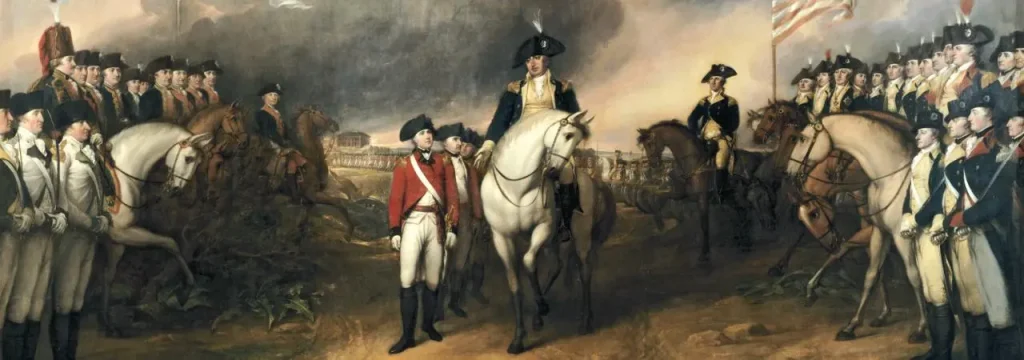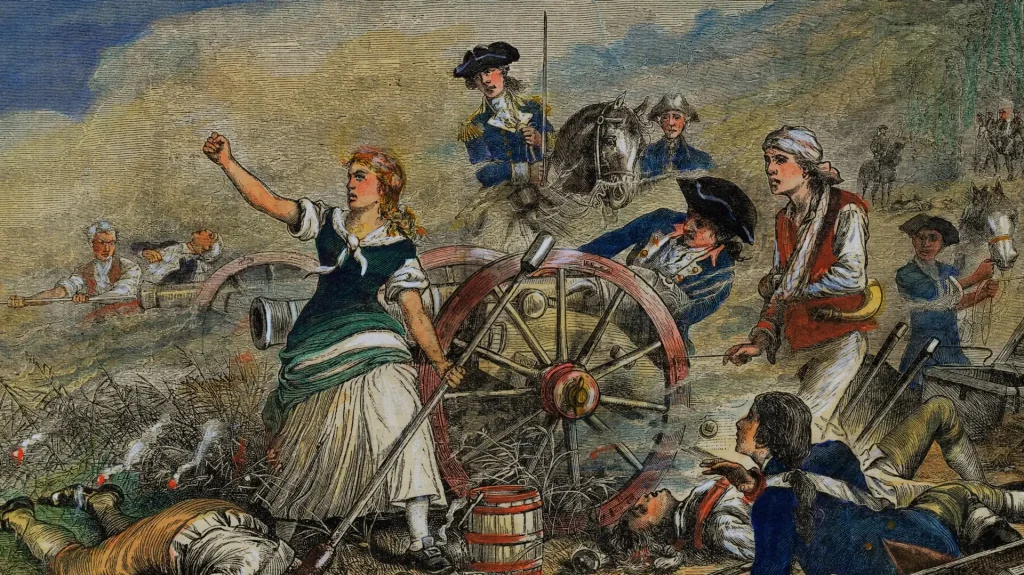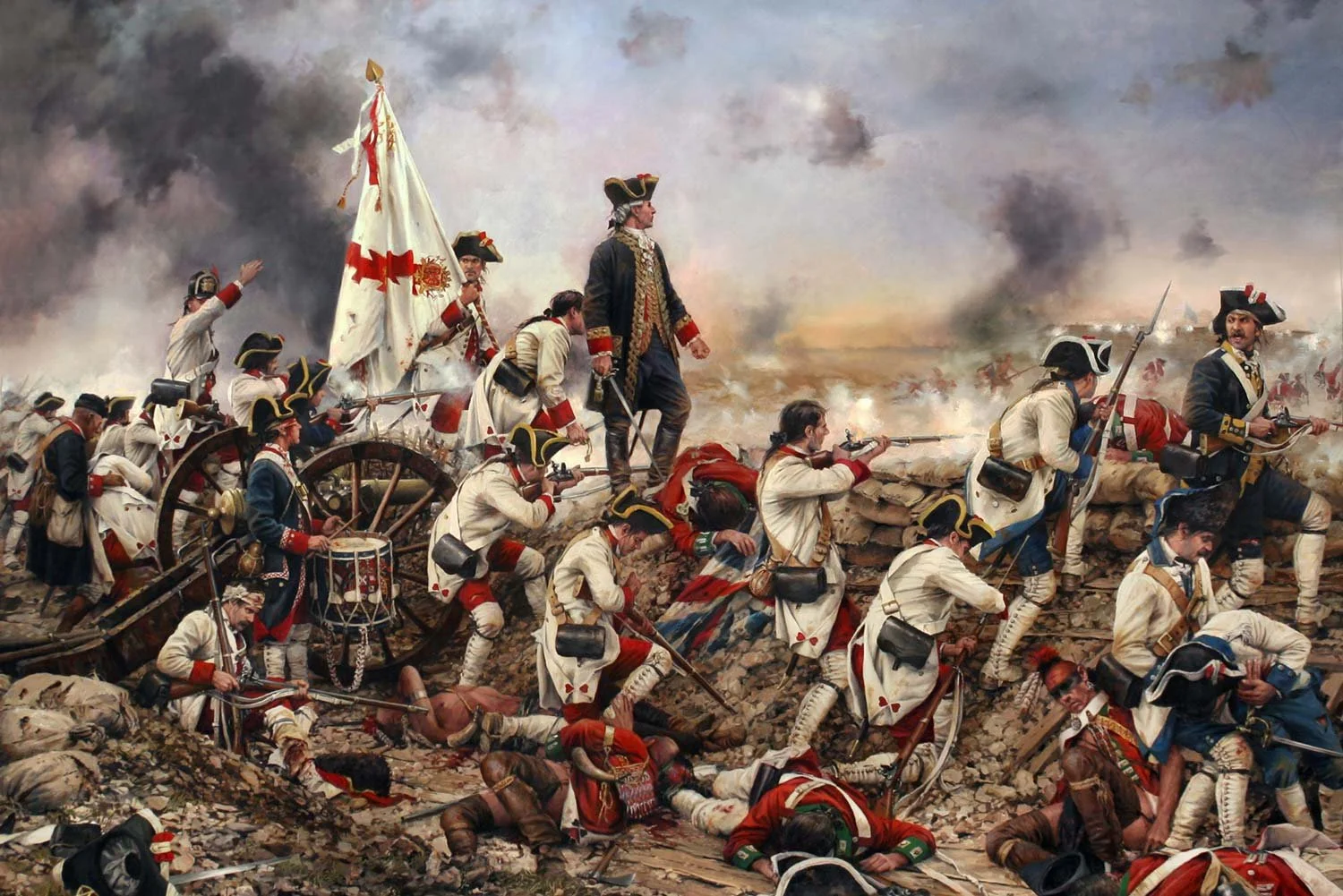The American Revolution was a pivotal moment in history, marking the birth of the United States as an independent nation. The roots of this momentous event can be traced back to a series of complex political, economic, and social factors that had been simmering for decades.
One of the primary catalysts was the growing sense of colonial resentment towards the increasingly oppressive policies of the British government. The colonies, which had long enjoyed a degree of autonomy, found themselves subjected to a tightening grip of control from the Crown. This manifested in the form of heavy taxation, restrictive trade regulations, and a general disregard for the concerns and interests of the colonists.
The colonists, who had been largely self-governing for generations, chafed under these burdensome policies. They viewed them as a violation of their rights as British subjects and a betrayal of the principles of self-determination that had been the foundation of their settlements. This growing resentment was further fueled by the perceived lack of representation in the British Parliament, as the colonies had no direct voice in the decisions that were shaping their lives.
Key events of the American Revolution
Contents
- 1 Key events of the American Revolution
- 2 The Declaration of Independence
- 3 The role of influential figures in the American Revolution
- 4 Impact of the American Revolution on the formation of a democratic nation
- 5 The global influence of the American Revolution
- 6 Lessons learned from the American Revolution
- 7 Commemorations and celebrations of the American Revolution
- 8 The lasting legacy of the American Revolution
- 9 Author
The American Revolution was a complex and multifaceted conflict, marked by a series of pivotal events that ultimately led to the establishment of the United States as an independent nation. One of the earliest and most significant flashpoints was the Boston Massacre in 1770, where British soldiers opened fire on a crowd of protesters, killing several civilians. This incident, which was widely publicized and condemned, served to further inflame the growing tensions between the colonies and the Crown.
The Boston Tea Party in 1773 was another defining moment, as colonists protested the British East India Company’s monopoly on tea by dumping an entire shipment into the harbor. This act of defiance was a clear rejection of the British government’s policies and a rallying cry for the growing independence movement.
The outbreak of the war itself in 1775, with the battles of Lexington and Concord, marked the beginning of the armed conflict that would ultimately lead to the colonies’ independence. The Continental Congress, which had been formed to coordinate the colonies’ response to British oppression, declared independence in 1776, setting the stage for a prolonged and bloody struggle.
The Declaration of Independence
The Declaration of Independence, drafted by Thomas Jefferson, stands as one of the most iconic and influential documents in the history of the world. This seminal text not only declared the colonies’ separation from Great Britain but also laid out the fundamental principles that would guide the formation of the United States.
At the heart of the Declaration was the bold assertion that “all men are created equal” and endowed with inalienable rights to “life, liberty, and the pursuit of happiness.” This radical concept, rooted in the Enlightenment ideals of natural rights and social contract theory, challenged the existing social and political order. By declaring that the legitimacy of government rested on the consent of the governed, the Declaration established a new framework for governance that would inspire countless other movements for self-determination and democratic reforms around the globe.
The Declaration’s ringing denunciation of the “tyranny” of the British government and its detailed list of grievances against the Crown further cemented the colonists’ justification for their revolutionary actions. This powerful rhetoric, combined with the document’s lofty ideals, galvanized the colonists and their allies in the fight for independence. The Declaration of Independence became a rallying cry that would echo through the ages, inspiring oppressed peoples and serving as a touchstone for the ongoing struggle for human rights and democratic freedoms.

The role of influential figures in the American Revolution
The American Revolution was shaped by a remarkable cast of influential figures, each of whom played a vital role in the struggle for independence and the establishment of the new nation. At the forefront of this group was George Washington, the commanding general of the Continental Army, whose leadership and strategic acumen were instrumental in securing victory against the formidable British forces.
Washington’s unwavering determination, coupled with his ability to inspire and unite his troops, was critical in overcoming the numerous setbacks and challenges that threatened to derail the revolutionary cause. His triumph at the Battle of Yorktown in 1781, which effectively ended the war, cemented his status as a national hero and paved the way for his eventual election as the first president of the United States.
Another pivotal figure was Thomas Jefferson, the principal author of the Declaration of Independence. Jefferson’s eloquent and impassioned articulation of the principles of natural rights, popular sovereignty, and limited government not only provided the philosophical foundation for the Revolution but also laid the groundwork for the creation of the new nation. As the third president of the United States, Jefferson would continue to shape the country’s trajectory, championing the ideals of individual liberty and democratic self-governance.
Impact of the American Revolution on the formation of a democratic nation
The American Revolution’s impact on the formation of the United States as a democratic nation cannot be overstated. By successfully challenging the British monarchy and establishing a government based on the principles of popular representation and individual freedoms, the colonists created a new model of governance that would reverberate around the world.
The Constitution, drafted in 1787, embodied the revolutionary ideals of the Declaration of Independence, enshrining concepts such as the separation of powers, checks and balances, and the protection of civil liberties. This groundbreaking document, which continues to serve as the foundation of the American political system, represented a radical departure from the traditional monarchical and aristocratic forms of government that had dominated much of the world.
The establishment of the United States as a democratic republic also had a profound impact on the country’s social and cultural fabric. The Revolution’s emphasis on individual rights and the rejection of hereditary privilege paved the way for a more egalitarian society, where opportunities for advancement were no longer solely determined by one’s birth or social status. This dynamic, combined with the country’s vast natural resources and expansionist policies, would ultimately attract millions of immigrants seeking a better life, further shaping the nation’s diverse and dynamic character.
The global influence of the American Revolution
The American Revolution’s impact extended far beyond the borders of the newly formed United States, as its ideals and principles reverberated around the world and inspired countless other movements for self-determination and democratic reform. The Revolution’s success in overthrowing the shackles of colonial rule and establishing a government based on the will of the people served as a powerful example for oppressed peoples everywhere.
The revolutionary ideas enshrined in the Declaration of Independence and the Constitution, such as the inalienable rights of man and the notion of popular sovereignty, became rallying cries for those seeking to challenge the existing social and political order. From the French Revolution to the Latin American independence movements, the American Revolution provided a blueprint and a source of inspiration for those seeking to cast off the yoke of tyranny and establish their own democratic institutions.
The global impact of the American Revolution was further amplified by the country’s rise as a major economic and military power in the 19th and 20th centuries. As the United States became a global superpower, its democratic values and institutions were increasingly seen as a model to be emulated, inspiring pro-democracy movements and influencing the political trajectories of nations around the world. The American Revolution’s legacy continues to resonate today, as the struggle for freedom and self-determination remains a central theme in the ongoing global dialogue on human rights and good governance.

Lessons learned from the American Revolution
The American Revolution offers a wealth of lessons and insights that continue to shape our understanding of the democratic process and the challenges of nation-building. One of the most significant lessons is the power of a united, determined, and well-organized populace to overcome even the most formidable of adversaries. The colonists’ ability to overcome the might of the British Empire, despite their initial disadvantages, serves as a testament to the transformative potential of collective action and the unwavering pursuit of liberty.
Another crucial lesson is the importance of establishing a robust and balanced system of government that can withstand the test of time. The framers of the Constitution, drawing upon the hard-won lessons of the Revolution, crafted a document that has endured for over two centuries, providing a framework for the peaceful transfer of power and the protection of individual rights. This foresight and attention to detail have been instrumental in ensuring the longevity and stability of the American democratic experiment.
The situstoto also highlights the vital role of leadership in shaping the course of history. Figures like George Washington, Thomas Jefferson, and Benjamin Franklin, through their vision, courage, and strategic acumen, were able to galvanize the colonists and guide them to victory. Their example underscores the importance of cultivating strong, principled, and effective leadership in the pursuit of societal transformation.
Commemorations and celebrations of the American Revolution
The American Revolution continues to be celebrated and commemorated in the United States and around the world, as its legacy remains a source of enduring pride and inspiration. The Fourth of July, the country’s Independence Day, is the most widely recognized and celebrated event, marked by parades, fireworks displays, and patriotic festivities that bring communities together to honor the sacrifices and achievements of the revolutionary generation.
Beyond the annual celebrations, the American Revolution is also commemorated through a variety of historical sites, museums, and monuments that preserve and interpret the events of the era. The National Park Service, for instance, maintains a network of Revolutionary War battlefields, historic homes, and other significant landmarks that allow visitors to immerse themselves in the history of the conflict.
The American Revolution has also been the subject of countless books, films, and other cultural works that seek to capture the drama, heroism, and lasting impact of this pivotal moment in history. From the iconic paintings of John Trumbull to the sweeping historical dramas of the silver screen, the American Revolution has become an integral part of the nation’s cultural fabric, shaping the collective memory and identity of the United States.
The lasting legacy of the American Revolution
The American Revolution stands as a transformative moment in world history, marking the birth of a democratic nation that would go on to shape the global political landscape for centuries to come. Through its bold declaration of independence, its successful armed struggle against the British Empire, and its establishment of a government founded on the principles of popular sovereignty and individual rights, the American Revolution set in motion a series of events that would reverberate around the world.
The ideals and principles enshrined in the Declaration of Independence and the Constitution, such as the inalienable rights of man and the notion of self-determination, have become touchstones for the ongoing global struggle for freedom and democracy. The American Revolution’s success in overthrowing colonial rule and creating a new model of governance has inspired countless other movements for self-determination, from the French Revolution to the decolonization efforts of the 20th century.
As the United States has grown into a global superpower, its democratic values and institutions have continued to exert a profound influence on the international community. The American Revolution’s legacy lives on, not only in the enduring strength of the American political system but also in the continued resonance of its ideals as a beacon of hope and inspiration for those seeking to challenge oppression and build a more just and equitable world. The American Revolution’s impact, both at home and abroad, remains a testament to the transformative power of the human spirit and the enduring allure of the quest for freedom and self-determination.
Also read: Bacon and Egg Cups: The Perfect Protein-Packed Breakfast to Kickstart Your Day





